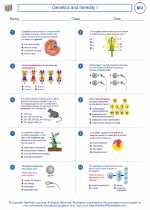Wool
Wool is a natural fiber derived from the fleece of sheep and certain other animals, such as goats (cashmere and mohair) and rabbits (angora).
Structure of Wool
Wool fibers have a complex structure that gives them unique properties. Each wool fiber is made up of three layers:
- Epidermis: The outer layer of the wool fiber, which is covered in scales that overlap each other.
- Cortex: The middle layer, which provides strength and elasticity to the fiber.
- Medulla: The innermost layer, which is present in some wool fibers and provides insulation.
Properties of Wool
Wool has several unique properties that make it a valuable material:
- Insulation: Wool fibers have a natural crimp that creates air pockets, providing insulation against both cold and heat.
- Moisture-wicking: Wool can absorb moisture vapor and wick it away from the body, keeping the wearer dry and comfortable.
- Elasticity: Wool fibers can be stretched and still return to their original shape, making wool garments resilient and long-lasting.
- Flame resistance: Wool is naturally flame-resistant, as it has a higher ignition temperature compared to many other fibers.
Uses of Wool
Wool is used in a variety of products, including:
- Apparel: Wool is commonly used in sweaters, suits, coats, socks, and other clothing items.
- Home textiles: Wool is used in carpets, rugs, blankets, and upholstery due to its durability and insulating properties.
- Industrial applications: Wool fibers are used in filtration, insulation, and padding materials.
Wool Production
The production of wool involves several steps, including sheep shearing, wool sorting and grading, washing, carding, spinning, and weaving or knitting.
Environmental Impact
Wool is a sustainable and biodegradable material, and sheep grazing can also have positive effects on land management and biodiversity.
Study Tips
To study wool effectively, consider the following tips:
- Understand the structure and properties of wool fibers.
- Learn about the different types of wool and their uses.
- Study the process of wool production and its environmental impact.
- Explore the historical and cultural significance of wool in different regions.
- Practice identifying and comparing wool samples to understand their variations.
◂Biology Worksheets and Study Guides High School. Genetics and heredity I
Worksheet/Answer key Genetics and heredity I
Genetics and heredity I  Worksheet/Answer key
Worksheet/Answer key Genetics and heredity I
Genetics and heredity I  Worksheet/Answer key
Worksheet/Answer key Genetics and heredity I
Genetics and heredity I  Worksheet/Answer key
Worksheet/Answer key Genetics and heredity I
Genetics and heredity I  Vocabulary/Answer key
Vocabulary/Answer key Genetics and heredity I
Genetics and heredity I  Vocabulary/Answer key
Vocabulary/Answer key Genetics and heredity I
Genetics and heredity I  Vocabulary/Answer key
Vocabulary/Answer key Genetics and heredity I
Genetics and heredity I  Vocabulary/Answer key
Vocabulary/Answer key Genetics and heredity I
Genetics and heredity I  Vocabulary/Answer key
Vocabulary/Answer key Genetics and heredity I
Genetics and heredity I  Vocabulary/Answer key
Vocabulary/Answer key Genetics and heredity I
Genetics and heredity I  Vocabulary/Answer key
Vocabulary/Answer key Genetics and heredity I
Genetics and heredity I 

 Worksheet/Answer key
Worksheet/Answer key
 Worksheet/Answer key
Worksheet/Answer key
 Worksheet/Answer key
Worksheet/Answer key
 Vocabulary/Answer key
Vocabulary/Answer key
 Vocabulary/Answer key
Vocabulary/Answer key
 Vocabulary/Answer key
Vocabulary/Answer key
 Vocabulary/Answer key
Vocabulary/Answer key
 Vocabulary/Answer key
Vocabulary/Answer key
 Vocabulary/Answer key
Vocabulary/Answer key
 Vocabulary/Answer key
Vocabulary/Answer key

The resources above cover the following skills:
LIFE SCIENCE (NGSS)
Heredity: Inheritance and Variation of Traits
Students who demonstrate understanding can:
Ask questions to clarify relationships about the role of DNA and chromosomes in coding the instructions for characteristic traits passed from parents to offspring.
Apply concepts of statistics and probability to explain the variation and distribution of expressed traits in a population.